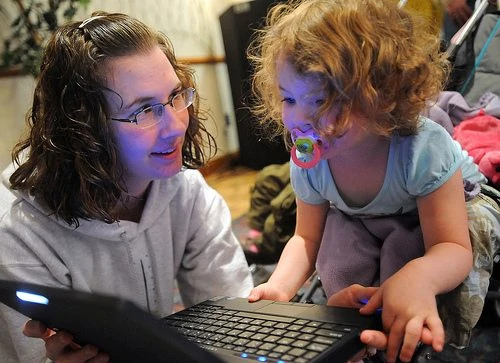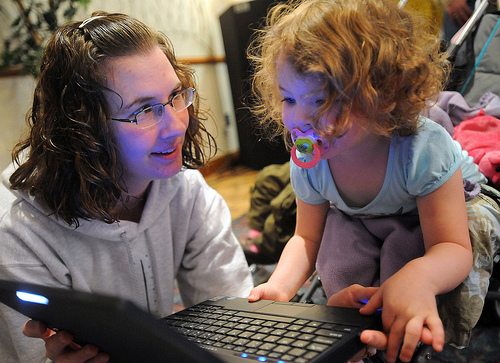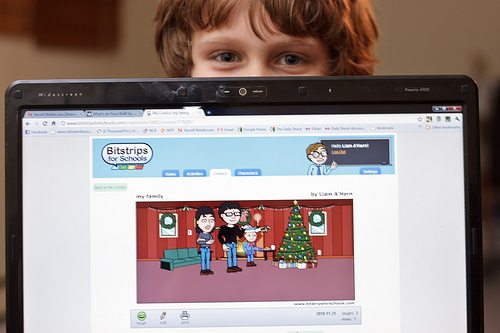Let me tell you a story…
Storytelling is the most ancient of all teaching techniques. Embedding knowledge and empathy in narrative, its the way we make sense of our lives. And it’s not just through movies, books, plays and other fictions. Journalists often use anecdotes to kick off their factual stories and grab reader interest. Lawyers rely strongly on narrative techniques to persuade.
Storytelling can help us learn and master language. It can even help us heal. As Dr. Thomas K. Houston told the New York Times for an article on his research, “That natural tendency [to tell stories] may have the potential to alter behavior and improve health.” The magic of stories “lies in the relatedness they foster. Marketers have known this for a long time, which is why you see so many stories in advertisements.”
Whoever Tells the Stories Defines the Culture
That magic also lies at the heart of an important truth: Whoever tells the stories defines the culture. As Dr. David Walsh writes in Smart Parenting, Smarter Kids,
Humans pass stories down from one generation to the next to transmit values, cultural norms, a sense of right and wrong, and an appreciation of place and history. This isn’t new. It’s been true for thousands of years. What is new is that today’s storytellers are mass media. Some media take this art to new heights, while others specialize in dishing out heaping servings of violence, mayhem, and disrespect. A mountain of research shows that media influence our attitudes, values, and behaviors – for better and for worse.
This research shows, for example, that video games are excellent teachers. Games present clear objectives, individualized instruction, and continuous achievable challenges; they encourage active learning through practice and feedback loops, and take place in endless virtual worlds that reduce boredom. But video games teach wildly different lessons, with recent research showing that certain video games can teach pro-social behaviors to kids, including cooperation and empathy, while violent video games can also teach aggressive and violent behaviors. These findings reinforce the same message: video games are powerful teachers and storytellers, and whether they have a positive or negative impact on our kids’ health and development depends upon the games and how we use them. (emphasis added)
And as we discussed in an earlier post, this holds true for technology as a whole. Arguing whether it’s good or bad misses the point. As the world changes, every generation has to redefine how to care for children. For 21st century parents, this care includes paying attention to the role of digital media in their lives. Often, it seems a never ending balancing act of technology’s potential to connect, educate, entertain and enlighten against the opportunities it creates for threats such as cyberbullying, chronic distraction, obesity, sexual exploitation, inactivity and passivity, and – importantly – the eroding of family and personal relationships.
Kind of ironic, no – when so much of digital life these days is “social”? Yet it’s what the research shows. Again, Dr. Walsh:
More and more of us engage in digital communication at the expense of real-life social interaction. A Stanford University study found for every hour we spend on our computers, face-to-face interaction time drops by nearly thirty minutes. On a similar note, a recent poll from the Annenberg Foundation’s Digital Future Report found a forty percent increase in family members feeling ignored because of other family members’ Internet use.
Further, Walsh notes, between 2006 and 2008, shared family time fell 30% to just 18 hours a month. For teens, time spent in face-to-face communication with peers plummeted, as well.
Unfortunately, trends like these mean young people talk to each other less and their brains are not wiring networks for communication skills, empathetic listening, and the ability to interpret and respond to non-verbal cues.
* * *
We aren’t born knowing exactly how to make a newcomer feel more comfortable or navigate social conflicts; we train ourselves to do this through years of face-to-face social interactions.
Compounding this, as research psychologist and computer educator Larry Rosen argues in his new book iDisorder, technology today is “so user-friendly that the very use fosters our obsessions, dependence and stress reactions.” Further, he notes, being hyperconnected can make us behave as though we have real psychological disorders, with people exhibiting symptoms of narcissistic personality disorder, obsessive-compulsive disorder, addiction, depression and other conditions.
But the operative word there is can. We only become subservient to technology when we allow it to rule. And although the demands and allure of digital life are powerful, there are steps we can take to teach children moderation, encourage balance and nurture wise and mindful media habits.
buy doxycycline online no prescription
Psychologist and author Dr. Doreen Dodgen-Magee offers these 10 tips:
- Set limits around electronic media: no more than two hours of screen time beyond homework and school requirements (per American Academy of Pediatrics recommendations); require kids to earn “digital rights;” healthy content (consider gender bias, violence and sexual content).
- Set rules and consequences around screen time before introducing new technologies into family life.
buy Flomax generic over the counter
- Keep electronic screens out of kids’ bedrooms.
- Create “technology-free” meal times.
- Support schools’ cell phone policies.
- Keep up with technology developments to know what’s popular with kids.
- Teach children responsible “netiquette” and to not give out personal information online.
- Encourage digital literacy while guiding youth towards safe, age-appropriate media activities.
- Understand and pay attention to media ratings.
- Model appropriate behavior including the shows you watch, when you use your phone, etc.
Two parent resources that Doreen also recommends: Mobicip mobile filtering software and Common Sense Media for media reviews and other tools for family Internet use.
Images by Joint Base Lewis-McChord and Sharon Drummond, via Flickr







